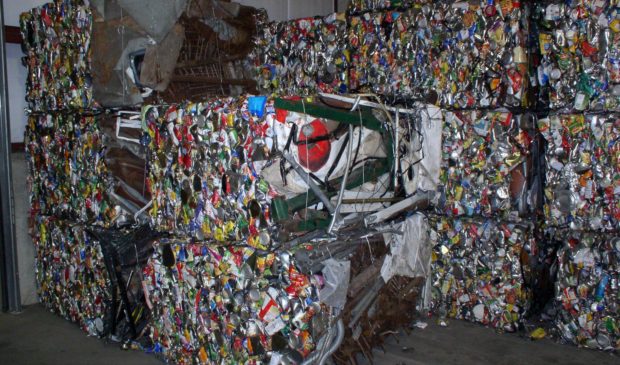Study offers a window into the lives of recyclers
Monday, June 26, 2017 by
Sommer Brugal Members of the Zero Waste Advisory Commission embraced the results of a six-month study intended to reveal the recycling habits of Austinites at their most recent meeting.
Emlea Chanslor, Austin Resource Recovery public information officer, presented the study’s results. She said one of the more important findings indicated that knowledge of what can be recycled simply isn’t enough. According to Chanslor, people need to have strength in two of three areas to be good recyclers. Those three areas, she explained, are motivation, knowledge and ability.
Commissioner Joshua Blaine said the study was “cool” and, overall, really well done. His question, though, focused on the project’s short study for a potential dual-bin program.
He asked if the methods were “transferable to the organics outreach (study) that we’re about to do, and if so, how directly or indirectly?”
Chanslor said that while the study did focus on recycling, there was conversation about other zero waste practices, like composting.
“When we got the personas back and we looked at our own materials, all of our materials focus on knowledge of what you can recycle (and) what our program has,” said Chanslor. “So knowing that we need to add the motivation part at least to our digital and print materials, is very transferable to organics, I think.”
The dual-bin program prompted discussion from other commissioners as well. While she expressed interest in the program, Commissioner Heather-Nicole Hoffman warned against ordering too many at the forefront.
“I would say you don’t need to invest in lots of (dual-bins) because there’s going to be lots of customization for people,” said Hoffman. “I hate to push for giving everyone one of these dual-bins because that’s not going to work for everybody.”
She said while some households accumulate more compost, others produce a higher amount of recycling. Hoffman suggested offering similar options and processes to the dual-bin program for those residents that have different habits.
The study began in September 2016 and was a joint effort between Austin Resource Recovery and Austin’s Design, Technology, and Innovation Fellows. They set out to develop new methods for reaching Austin’s Zero Waste goal and took a human-centered approach to do so. To better understand Austin residents, team members conducted 90-minute in-home interviews with 52 families.
Chanslor said the study included recycling enthusiasts as well as those who weren’t as interested in recycling. From those interviewed, researchers created five different personas that reflected an individual’s relationship with recycling.
Those five personas are: the Analyst, the Lone Recycler, the Well-Intentioned, the Enthusiast and Under Pressure.
“(The personas) don’t include every single perspective in the community,” said Chanslor, “but this helps us to focus our efforts and to understand the customers we’re talking to in a new way.”
Chanslor said Austin Resource Recovery now has data and knowledge it can use to help relate to the members of the community, and to further understand what motivates them to engage in positive recycling habits in the future.
Photo by blahedo (Own work (photo by me)) [CC BY-SA 2.5], via Wikimedia Commons.
The Austin Monitor’s work is made possible by donations from the community. Though our reporting covers donors from time to time, we are careful to keep business and editorial efforts separate while maintaining transparency. A complete list of donors is available here, and our code of ethics is explained here.
You're a community leader
And we’re honored you look to us for serious, in-depth news. You know a strong community needs local and dedicated watchdog reporting. We’re here for you and that won’t change. Now will you take the powerful next step and support our nonprofit news organization?










